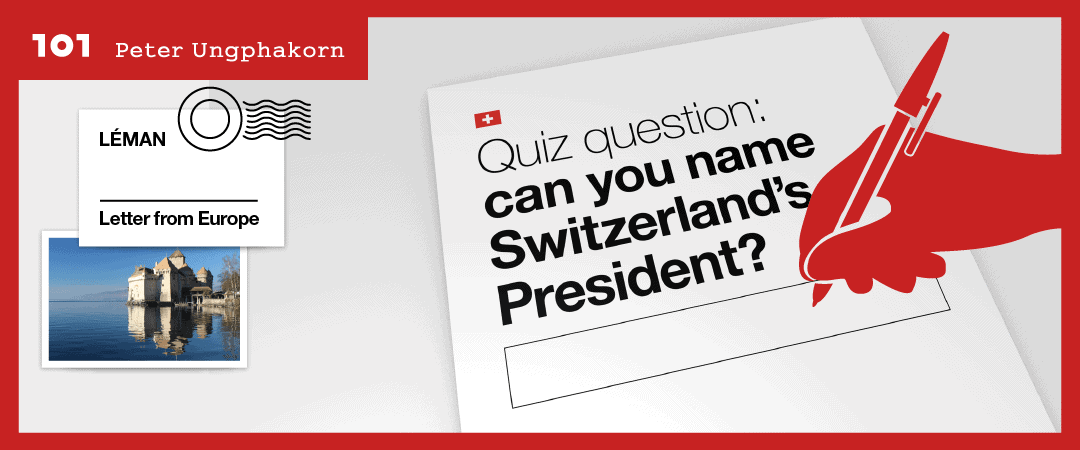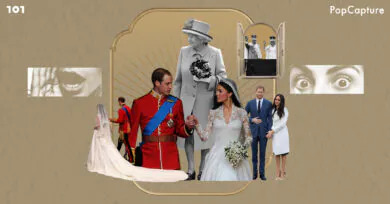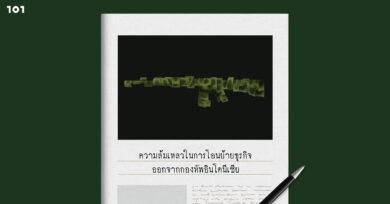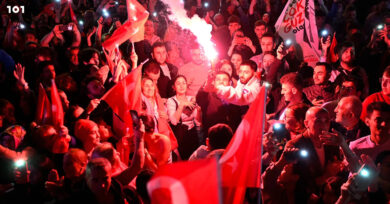Peter Ungphakorn
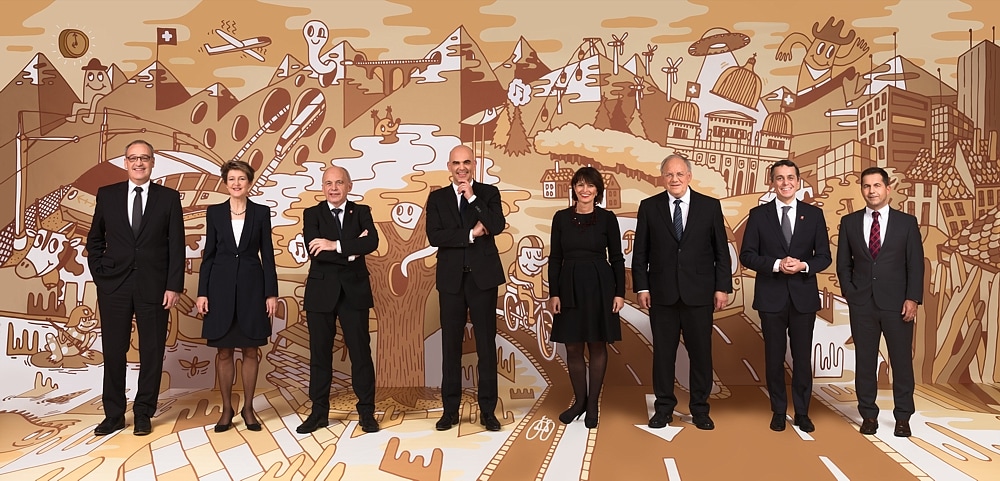
One autumn evening last October, it was still warm enough to dine on the cobbled streets outside the restaurants in Bern’s old town, a UNESCO heritage site. My companion nudged me.
“It’s her. It’s the president.”
A lone figure crossed the road beside us. She headed down the old arcades on the opposite side and out of sight.
It took me a couple of seconds to recognise her. She was Doris Leuthard and she was the President of Switzerland.
She probably came from the federal offices nearby. Perhaps she was walking home. She was alone. No bodyguards. No aides. No one else paid any attention. Many might not even have known who she was.
“Oh yes, she does that all the time,” said a knowledgeable Swiss friend later.
Doris Leuthard is no longer President of the Swiss Confederation, to give the office its proper title. Her term expired at the end of 2017.
Which brings us to a couple of popular quiz questions:
- Can you name the President of Switzerland?
- How many former presidents of Switzerland are still alive?
Switzerland is a small country. That in itself means its head of state is little known, just as most of us would struggle to name the chancellor (prime minister) of Austria. So for most people the answer to the first question is likely to be “no”.
But Switzerland’s small size is not the whole story, and doesn’t explain why many Swiss themselves struggle to answer the first question, and why the answer to the second is astonishing.
Germany has one living former head of government (Gerhard Schröder). France and Britain have four each. The US has five.
Thailand, famous for political instability, has 11 living former prime ministers (in office from 47 days to eight and a half years).
And yet, Switzerland, with one of the most stable governments in the world, beats all of them. It has 19 living former presidents.
The reason is unique to Switzerland and it also explains why, apparently, 25–50% of Swiss cannot name their own president either.
“If you want to disappear, become president of Switzerland,” joked Geneva comedian Marina Rollman in this explanation to a French audience.
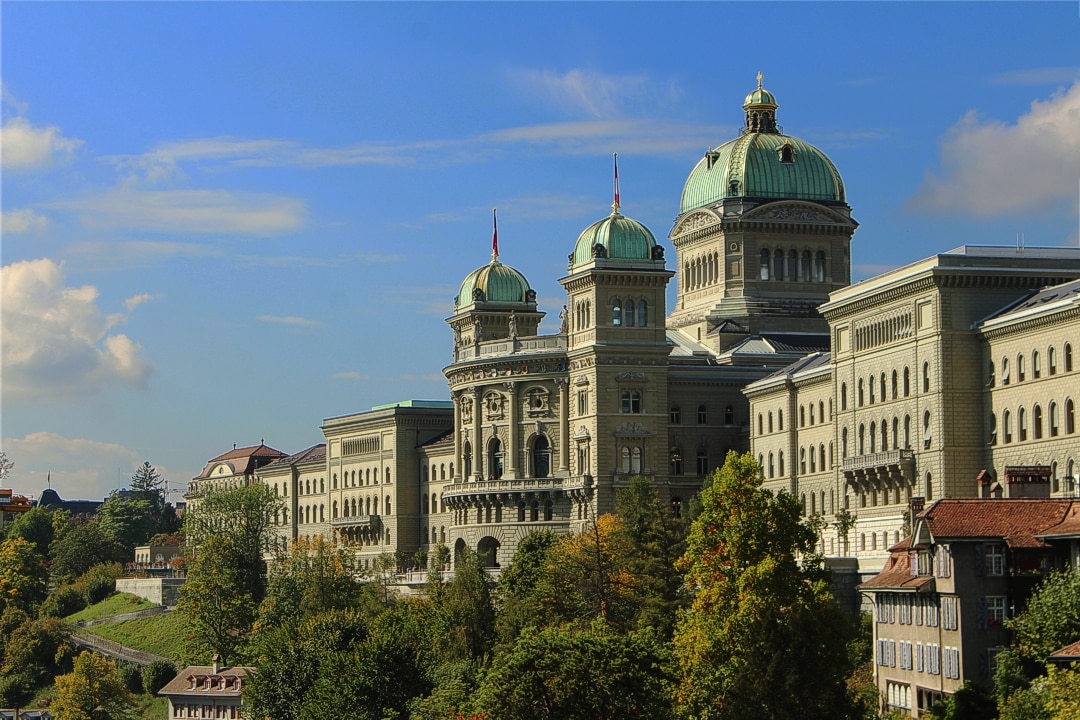
Consensus politics
This is because Swiss presidents have one-year terms. They take their turns in a system that is almost but not exactly rotation — they are elected by parliament from the seven members of the Cabinet (officially the Federal Council), which has four-year terms.
The Cabinet is itself unique because its seven members always come from all the main parties, right across the political spectrum. The Swiss call it “consensus politics”.
The ministers are elected by parliament, almost always from among its members, or occasionally members of cantonal parliaments, although in theory any Swiss citizen is eligible.
The numbers from each party change occasionally, to reflect shifting representation in parliament. The present Cabinet consists of two centre-left Socialists, one centre-right Christian Democrat (Leuthard’s party), two centre-right Free Democrats/Liberals and two from the far-right Swiss People’s Party.
They are also spread across the cantons and the Swiss language areas. (Eight other small parties including the Greens are also represented in parliament.)

The new president since January 1 is Alain Berset, a Socialist from the bilingual French-German-speaking canton of Fribourg, and at 45 the youngest Swiss president in 84 years.
The switch from a centre-right president to a socialist will not signal a major change in government policy. The consensus system ensures that. The seven ministers in the Federal Council are unchanged, including President Berset himself who stays in charge of Home Affairs (including welfare and health).
On January 10, he chaired his first meeting of the Federal Council in what must be one of the most ornate Cabinet rooms in the world:
Première séance du Conseil fédéral sous la conduite du #PrésidentCH @alain_berset . La série vidéo « Le Conseil fédéral en bref » livre des informations intéressantes au sujet du Conseil fédéral : https://t.co/ey67gJrMUf (BK) pic.twitter.com/5vtwRIBg47
— André Simonazzi (@BR_Sprecher) January 10, 2018
In an interview with swissinfo.ch, the website of the national broadcasting corporation, Berset said that unlike some previous presidents, he would not try to define his term by a particular policy issue.
“I don’t believe in politics led by slogans,” he said. “When one commits oneself to this field, it’s for the whole of society, in the interest of the whole country, not for particular causes.
“In Switzerland, the presidency is a role that is shared. One assumes the role for one year and then passes it on to another member of the Federal Council. The sense of continuity is therefore very strong. There are certainly nuances, different ways of saying things, but you don’t become president by saying that you have a year to get your agenda passed.”
But there is more to state policy than consensus reached among the seven ministers. This is a system of decentralised direct democracy, with three or four referendums held annually, and power shared all the way from the villages (or communes) to the cantons and finally to the centre.

Leuthard, his immediate predecessor, is one of four since 2000 to have been president twice, non-consecutively. She thinks presidents should stay in office for two years instead of one.
It’s a move that will not affect her personally since she has announced she will retire at the end of her term in the Federal Council in 2019.
And her reason is not about policy-making in Switzerland. It’s about international networking, one of the main roles of the president.
“After a year, you have built up quite big network because you are travelling,” she told the French-language radio of the national broadcaster, “you get to know quite a few presidents and then afterwards you step back and somebody else has to work on these relations. It’s not really very good for international contacts.”

Hard-fought issues
“Consensus” doesn’t mean politics is bland, however. Issues are hard-fought in the federal and cantonal systems, including among the seven ministers.
For example, the Socialists and some of the other parties oppose some or all of the Swiss People’s Party’s scepticism about the European Union, immigration and at least some cultural aspects of Islam such as minarets and the face-covering burka or niqāb.
To understand how this works we have to shake off a number of preconceptions. Switzerland has a president, but the system is not presidential in the sense of the US (chief executive), France (president with prime minister), or Germany (ceremonial head of state).
The Swiss president and Federal Council are members of parliament, but this is not a prime ministerial system in the British (or Thai) sense either.
This is government by cross-party collegiate council. Because the seven ministers represent all the main parties, the key to decision-making in the council is compromise to overcome major differences in their positions.
On their own, the compromises could produce endless middle-of-the road government. But within consensus decision-making ministers can push their parties’ policies. And the system does offer other routes for the parties and even for groups of individuals to pursue their agendas. These include votes on legislation in parliament and initiatives and referendums put to the electorate.
In 2017 two major political debates were about reforming the pension system and corporate tax. Both were rejected in popular votes. The “no” vote on pension reform was a personal blow for Berset whose Home Affairs Department handles social insurance. As a member of the consensus government, officially he backed corporate tax reform too, although his party opposed it.
This year, the Swiss People’s Party, on the opposite end of the spectrum, is campaigning in referendums on ending licence-fee support for public broadcasting, which the consensus Cabinet (including two ministers from the party) opposes, and on constitutional reform to drop the present priority given to obligations under international treaties (voting in 2018 or 2019, this report is in French). They too will be controversial.
In a sense, consensus decision-making in the Cabinet provides continuity and stability — one of several Swiss institutional checks and balances — at the top of a system that could otherwise be volatile with its frequent popular votes. For example the Cabinet can make counter-proposals if it opposes a popular initative. It also means the government represents a broad spread of opinion among elected parliamentarians.
Berset’s interview with swissinfo.ch at the start of his term covered a wide range of topics, including the strengths and weaknesses of direct democracy, concern about Swiss populism echoing Trump in the US and Brexit in the UK, the forthcoming referendums on public broadcasting and constitutional change, and Switzerland’s strained relationship with the EU over their complicated bilateral agreements.
He acknowledged that he found the 2017 failures disappointing, and that they also raised questions about whether big changes are possible at all.
“In the short term, you could say that major reforms are no longer possible. But you have to take a longer-term view. It is up to us to cultivate this ability to be in motion and to reform the country.”
His bottom line: it took courage for Switzerland to make advances in the past, and that courage is needed again.
“Today, in the face of digitalisation and globalisation, nothing would be more detrimental than to hold back while the world around us rapidly evolves.”
Want more?
- The Swiss Confederation — a brief guide: download pdf or Android/Apple app.
- Direct democracy — coverage on swissinfo.ch
Image and photo credits: Federal Council and councillors — © Swiss Federal Chancellery/STEM, used with permission; “The Swiss President” chart — © Swiss Federal Department of Foreign Affairs, used with permission; Bern Parliament and federal buildings — by Peter Ungphakorn, CC BY-SA 4.0.
Peter Ungphakorn is based on the shores of Lake Léman in Switzerland. He spent almost two decades with the WTO Secretariat, Geneva. Before that he worked for The Nation and the Bangkok Post. He now writes for IEG Policy on agricultural trade issues and blogs on trade, Brexit and other issues at https://tradebetablog.wordpress.com/
